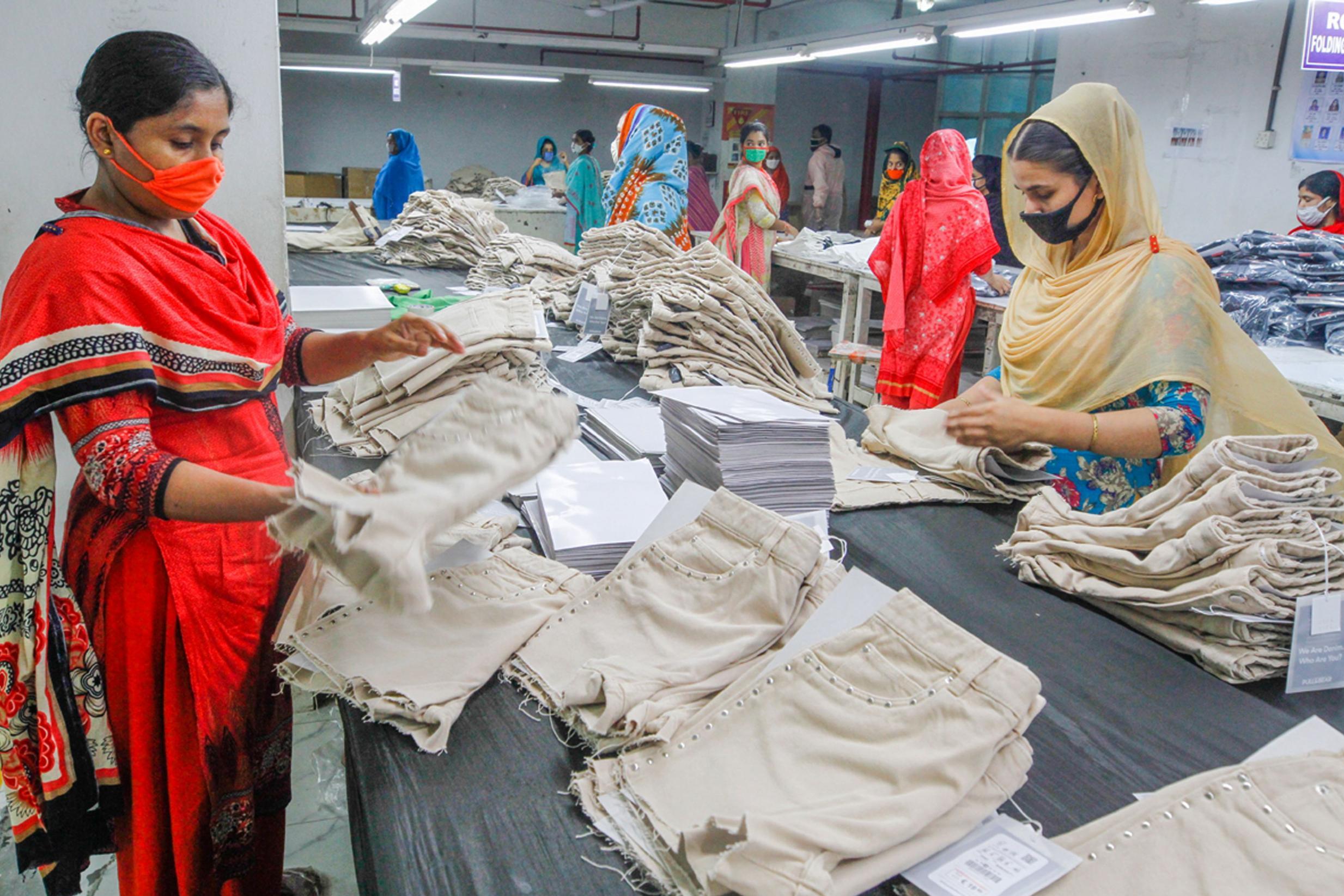Colonialism isn’t a thing of the past, it’s a fashion industry reality
The truth is slavery never actually left our modern world. We’ve been brainwashed to think otherwise, writes Céline Semaan


Covid-19 is not just a public health crisis, it’s also a major environmental issue. Scientists have already linked coronavirus, along with a host of other deadly diseases, to human destruction of wildlife and land. While the pandemic has gravely impacted the fashion industry and many others, all of these issues are deeply intertwined. The pervasive exploitation of human labour, land grabs, widespread pollution, drought and more are what got us here.
The fissures in the system seem to get deeper each day, revealing the industry’s already broken bits: big box brands refuse to pay garment workers who already navigate low wages, poor working conditions, hunger, and sickness; small and big businesses are being forced to down shutters; some are filing for bankruptcy while others cling on by cutting hundreds of jobs. Countless lives are being lost while our economy is tanking, taking the fashion industry along with it.
This month fashion designer Diane von Furstenberg announced the closure of 18 of her 19 stores. According to the New York Times, over 60 per cent of the corporate and retail staff in the United States, Britain and France were laid off with creditors complaining about unpaid bills. Reportedly the DVF brand, like many contemporary fashion companies, had been navigating business challenges for some time already but the pandemic pushed the brand over the edge.
It’s strange to think that my last public appearance was at DVF’s International Women’s Event, where I spoke about how sustainable systems benefit people and the planet. More people seem to be tuning into what happens when capitalistic, oppressive systems break down in real time.
The complex systems in place have always been unstable and inhumane, and this is becoming clearer now, which is exactly why I wasn’t surprised when a new undercover investigation by The Sunday Times accused Boohoo of paying its factory workers as little as £3.50 per hour with its workforce, like many others, being forced to continue working during the pandemic. Workers shouldn’t have to choose between making a living and potentially catching a deadly virus – they need better, safer options.
Working in unjust and unsafe conditions is not unusual for the fashion industry, it’s ubiquitous. Fashion, a sector ripe with ingenuity, is inherently exploitative. The cost of staying “on trend” has long been prioritised over human lives and our dying planet. And while some might find this shocking, the truth is slavery never actually left our modern world. We’ve been brainwashed to think otherwise and to place our attention elsewhere.
As Fashionista reported in 2018, “the Global Slavery Index’s 2018 report, published by the Walk Free Foundation, states that $127.7bn (£98.50bn) worth of garments at risk of including modern slavery in their supply chain are imported annually by G20 countries, a group of nations which account for 80 per cent of world trade.” This means that fast fashion is distinctly tied to colonialism.
In 2016 I started mapping the trade routes for resources and labour to better understand the impact the fashion industry has on social and environmental issues. These same trade routes are identical to colonial routes established in the 1500s. Colonialism is not a thing of the past, it is an economic reality.
Some people expect these issues to be combated by monitoring what they buy on an individual level, but gestures can only go so far, often perpetuating other systemic issues. For example, a massive portion of clothing donations end up in global landfill. According to the film True Cost, the average American now generates 82 pounds of textile waste each year. That adds up to more than 11 million tons of textile waste from the US alone.
For many businesses, the demands of capitalism – a system built on the idea that more is better – are hefty. Designers struggle to keep up with the growing number of collections required to stay relevant, only to be left with an abundance of excess materials that then must be discounted and discarded by any means necessary.
In 2017 the Ellen Macarthur Foundation found that the equivalent of one rubbish truck of textiles is landfilled or burnt each second while an estimated $500bn (£386bn) is lost every year due to clothing that’s barely worn and rarely recycled. From transport to waste, global emissions are rising steadily, and the fashion industry is a key player.
In my work, I’ve found that sharing complex information empowers more people to dismantle oppressive systems, and to demand and lobby for change. As my colleague Aja Barber says, “Transparency will never be enough because a brand can be perfectly transparent about exploitation and tick a box”. Instead, Barber says, “We have to rewrite the map, moving away from the formula of outsourcing labour with no real investment in the places where the clothing is produced. The current model allows for brands to walk away from exploitation and claim they didn’t know.”
Transparency isn’t enough – it is merely the beginning of a long-awaited reform of an industry based on imperialist values and exploitation.
Unfortunately, this is not a simple problem an individual or a collective of individuals can solve. These crimes against humanity are not the public’s responsibility alone, which is something Slow Factory, the environmental justice non-profit I co-founded in 2013, has been exploring. By bringing both the industry and the public together to discuss solutions to the fashion industry’s climate and human rights issues, we are increasing sustainability literacy and making change actionable through free, open education.
Yes, consuming less reduces carbon emissions but it does not solve the systems of oppression in which we exist. To seek long-lasting change and solutions, we must address these issues on a global scale involving industries, legislatures and various sectors in designing an anti-colonial system, one we still have to imagine and implement.
The time for something better is long overdue. Fashion might never be the same as it was pre-Covid, but perhaps now the cracks are a bit more pronounced, real change could be possible.
Join our commenting forum
Join thought-provoking conversations, follow other Independent readers and see their replies
Comments
Bookmark popover
Removed from bookmarks